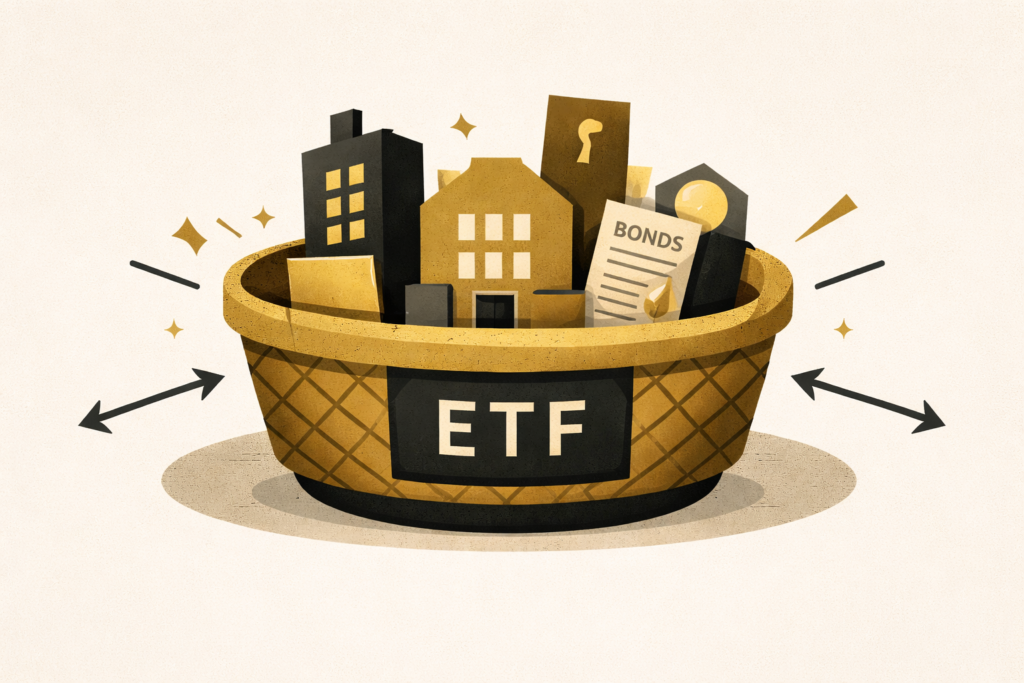Understanding Economic Uncertainty
Economic uncertainty refers to the unpredictability regarding the future state of the economy, which can be caused by a variety of factors such as inflation, market volatility, and geopolitical events. These elements create an environment where both individuals and businesses face challenges in making informed financial decisions. Inflation, for instance, diminishes purchasing power, leading to increased costs for goods and services. This scenario requires individuals to adapt their budgets, often resulting in difficult choices about spending and saving.
Market volatility, another critical aspect of economic uncertainty, influences stock prices and investment strategies. Unexpected fluctuations in stock markets can lead to significant financial losses, prompting investors to reassess their portfolios in an attempt to mitigate risk. As market conditions shift, the ability to remain agile with investment choices is essential; those who adapt quickly may find opportunities for profit in areas that others overlook.
Geopolitical events, such as political changes, conflicts, or trade tensions, can further exacerbate economic unpredictability. These events can lead to shifts in consumer confidence and spending habits, impacting both local and global markets. For businesses, this necessitates a more detailed analysis of market conditions and a reevaluation of operational strategies to maintain stability and growth amidst chaos.
In light of these challenges, it is crucial to adopt proactive financial strategies. Individuals and businesses should prioritize developing contingency plans, diversifying investments, and regularly reviewing their financial forecasts. Such measures prepare them to respond effectively to sudden changes, allowing for improved resilience in uncertain economic climates. Adapting financial strategies during uncertain times is not just advisable; it has become a necessity for ensuring long-term sustainability and success.
Diverse Income Streams: Why They Matter
In an era marked by economic uncertainty, establishing diverse income streams becomes imperative for financial security. Relying solely on a single source of income can pose significant risks, particularly during downturns or job losses. By diversifying income, individuals can create a buffer against potential financial disruptions and enhance their overall stability.
There are numerous avenues through which one can generate additional income. Passive income investments present an attractive option; these involve generating revenue through investments such as real estate, stocks, or bonds. Although these require initial capital and time, they can yield consistent returns over time, allowing for greater financial flexibility and reduced reliance on traditional employment.
Freelance work serves as another viable income stream. With the rise of the gig economy, numerous platforms offer opportunities for individuals to showcase their skills and connect with potential clients. This not only provides a source of income but also enhances personal networks and can lead to future job opportunities. Additionally, freelance work allows for the flexible scheduling of hours, offering a balance between personal commitments and professional aspirations.
Side businesses are another popular method of generating income. Individuals can leverage their hobbies, talents, or skills to create a profitable venture. Whether through e-commerce, consulting, or content creation, the ability to monetize one’s interests can significantly contribute to overall income diversity.
Implementing multiple income streams effectively involves strategic planning and organization. Setting clear goals for each source of income, tracking earnings, and assessing performance regularly are vital steps in ensuring sustainable growth. Adopting a proactive approach will not only mitigate risks associated with economic fluctuations but also foster long-term financial resilience.
Investing Wisely: Savvy Investment Strategies
In uncertain economic times, making informed investment decisions is critical to safeguarding your financial future. Savvy investment strategies can lead to positive returns, even when market conditions appear challenging. One of the fundamental principles of investing wisely lies in effective asset allocation, which involves distributing investments among varied asset classes to optimize growth while minimizing risk. This strategy ensures that some investments may compensate for losses in others, hence providing a buffer against market volatility.
Diversification plays a pivotal role in an effective investment strategy. By spreading investments across different sectors, geographical regions, and types of assets—such as stocks, bonds, and mutual funds—investors can reduce the overall risk of their portfolio. In environments characterized by uncertainty, relying solely on a single asset or sector can lead to detrimental outcomes. Therefore, a well-diversified portfolio is essential, enabling one to withstand fluctuations and capitalize on opportunities that arise in different market conditions.
Among the safer investment options, bonds and real estate often stand out during turbulent times. Bonds are generally considered lower-risk investments compared to stocks, providing steady interest income and preservation of capital. Meanwhile, real estate has historically been a stable asset class that can serve as a hedge against inflation. Investing in rental properties, Real Estate Investment Trusts (REITs), or real estate funds can offer attractive returns, especially when traditional asset classes falter.
Furthermore, long-term investing is crucial during periods of market volatility. By maintaining a long-term perspective, investors can ride out short-term fluctuations and benefit from compounding returns over time. Assessing your risk tolerance is also vital; understanding how much risk you can comfortably handle can guide your investment choices, helping you select suitable assets that align with your financial goals. In uncertain times, a thoughtful approach to investing can significantly enhance your chances of financial success.
Upskilling and Resilience: Preparing for the Future
In today’s rapidly changing world, the ability to adapt through upskilling has become essential for both personal and professional growth. Upskilling refers to the process of learning new skills or enhancing existing ones to improve one’s employability and make one more competitive in the job market. Particularly in uncertain times, investing in skills development can provide a buffer against economic fluctuations and industry shifts. Various platforms offer online courses that cater to different fields, allowing individuals to acquire knowledge at their own pace and convenience. Certifications can also serve as a testament to one’s expertise, making candidates more appealing to employers.
Networking plays a critical role in upskilling as well. Building relationships within one’s industry can lead to mentorship opportunities, knowledge sharing, and even potential job openings. Utilizing professional networks such as LinkedIn or attending virtual conferences is a proactive way to stay engaged with fellow professionals in similar fields and to discover trends that may dictate the necessary skills for the future.
Furthermore, the importance of resilience—both in a personal and financial context—should not be understated. The capacity to bounce back from challenges is paramount during economically turbulent times. Developing a resilient mindset involves taking calculated risks and remaining open to change. Individuals who cultivate their skill sets and build strong professional networks are likely to find new opportunities that contribute to financial stability, regardless of the external economic landscape.
By focusing on continuous learning and fostering valuable connections, individuals can better prepare themselves for future uncertainties. This proactive approach not only enhances one’s employability but also instills confidence, fostering resilience that can significantly influence long-term success in the face of adversity.










